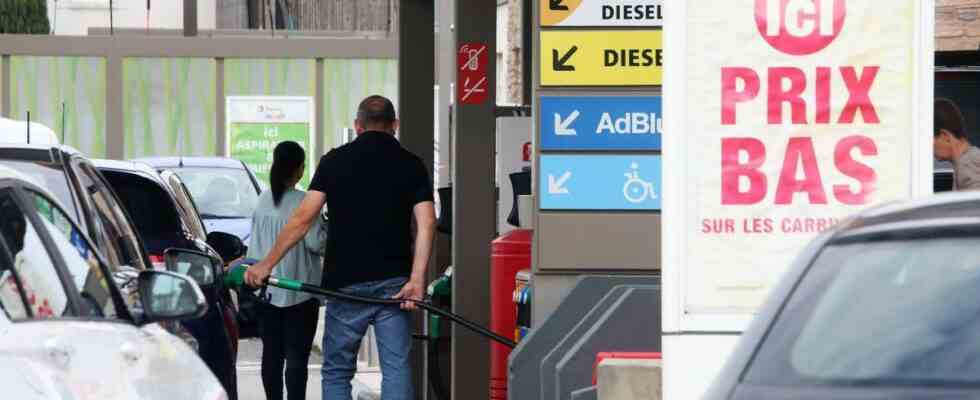Desperately looking for fuel. Many motorists wishing to refuel in recent days have had to take their troubles patiently. The fault of dry stations or queues sometimes stretching for hundreds of meters. What are the reasons for this, and how will the situation evolve? 20 minutes takes stock of these tensions at the pump.
How to explain the difficulties in refueling at the moment?
Faced with soaring prices, the government has applied a discount of 30 euro cents per liter since 1 September. A boost that caused a rush at the pumps. “The demand for service stations has been boosted by a system of discounts on the price of fuel, to which has been added the Total bonus (set at 20 cents)”, explains Frédéric Plan. The French giant recorded a 30 to 40% increase in the number of customers.
“We are seeing a phenomenon of consumption, the tanks are fuller than usual, adds Frédéric Plan. That means larger service station trips. “And therefore a logistical tension, increased by the strike movement which affects four refineries out of six as well as several oil depots, including that of Dunkirk, one of the most important. “This is the truly problematic fact”, judge Frédéric Plan. “There is no shortage, the products are available, but we cannot get them out enough. »
On Wednesday, Xavier Bertrand, the president of the Hauts-de-France region (the most impacted with 30% of stations affected), challenged the government by deploring the consequences on “essential public services, such as school and road transport”.
Will the prices go up?
Government spokesman Olivier Véran admitted “temporary tensions (…)” by specifying that 12% of stations encounter “difficulties on at least one type of fuel”. The former Minister of Health added that the State had had to “draw on strategic stocks to allow supplying” certain stations. “On the French market, to compensate for the lack of exit from these refineries on strike, maritime imports have increased significantly, explains Frédéric Plan. Boats are also coming on diesel, and soon on gasoline. That is done at prices higher than the market price. »
This partly explains why prices have started to rise again. On average, diesel thus increased by 3.6 cents. The situation could also change in the coming weeks with the decision of the OPEC + countries to reduce their production by two million barrels per day in November. A price increase could result from this, although Frédéric Plan plays the card of uncertainty: “The oil markets are surprising. OPEC can decide to reduce its production and for all that, we can see the barrel increase for a few days, then go down again afterwards. »
Will the situation continue?
The Total group announced “to mobilize to resupply the network thanks to additional logistical means”. The prospect of the reduction of the government rebate from 30 to 10 centimes on November 1 nevertheless suggests strong tensions. Especially since Total will lower its discount at the same time, from 20 to 10 cents.
“The last week of October is problematic in terms of consumer psychology, it’s true for professionals as well as for individuals”, engages Frédéric Plan. “Everyone will say to themselves: ‘As long as I have to stock up, I might as well do it as long as the discount is there.’ There will naturally be stronger demand in the last week of October. »
“If the strike ended today or tomorrow, it could pass, but as long as the strike continues in the refineries, there will be resupply issues,” he continues. “We have absolutely no information on the state of progress of the negotiations which would make it possible to put an end to the strikes at the shipments of the refineries. Having no visibility, we wonder. Motorists too.

